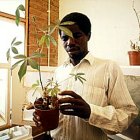Malawi finally starts building science university
Published on May 3, 2011 at 10:00 AM by FACE OF MALAWI
[LILONGWE] Seven years after it was first mooted, the Malawi University of Science and Technology (MUST) is finally getting off the ground.
President Bingu wa Mutharika laid the foundation stone this month (9 April) in the southern district of Thyolo.
MUST — formally known as the Lilongwe University of Science and Technology — will be built with a loan of US$70

It is hoped that the university will create a pool of experts in various research areas – FAO/A
million from China on 650 acres of land from the president’s farm, something that commentators have flagged as a potential problem if the ruling party fails to win future elections.
Construction, which will take 20 months, was due to start last year following an announcement by Mutharika on 25 August. The government had been authorised to borrow US$80 million from the Export-Import Bank of China but the plan was delayed while a suitable site was found.
At the foundation-stone ceremony, Mutharika said the university will create a pool of experts in areas such as environmental science and African traditional medicine. He said it will be an academic centre of excellence, offering undergraduate, postgraduate and postdoctoral studies, and will provide a platform for African scientists to share knowledge.
“I will not allow the establishment of a second-grade institution,” said Mutharika, adding that MUST has already established links with other internationally acclaimed institutions. Collaborations with the Association of Commonwealth Universities and UNESCO (UN Educational, Scientific and Cultural Organization) will strengthen the university’s capacity and ensure access to the latest scientific and technological developments, he said.
Faculties will include an academy of medical sciences, a technology institute and a school of climate change and earth science. In addition, a teaching hospital will provide care for patients from surrounding communities.
The Chinese ambassador to Malawi, Pan Hejun, said that, since China and Malawi established diplomatic ties three years ago, his country has helped Malawi implement a series of projects to develop its infrastructure.
Sosten Chiotha, chairman of the National Commission for Science and Technology, said MUST will help to address capacity gaps in undergraduate and postgraduate programmes — something his own institution, the University of Malawi, was unable to do when it first started.
“As a medical parasitologist, I had to go to the London School of Hygiene and Tropical Medicine for an MSc. There are very few [medical parasitologists] in Malawi, even though the country is burdened by parasitic infections,” he said.
“I believe the university will be able to embrace emerging challenges such as climate change from the start. Many older universities have had to re-orient curricula and research to target climate change and many of the emerging issues,” he added.
Source – SciDev.Net – by Charles Mkoka – 29 April 2011


